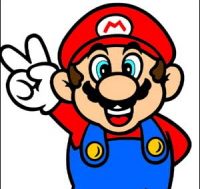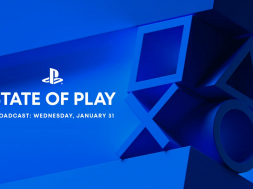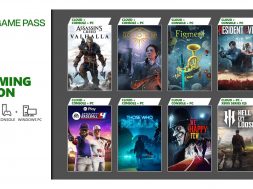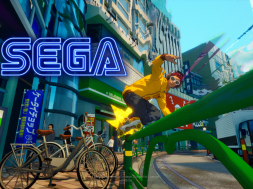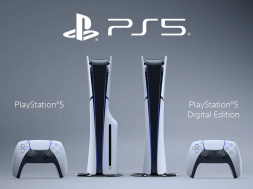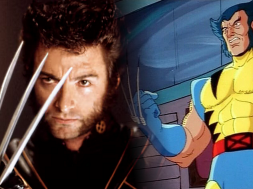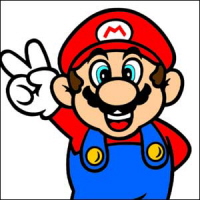
If you’re into your gaming and tech news then by now you are more than likely already aware of the sad news coming out of Nintendo’s corner of late. If you aren’t, well the general gist is the Wii U is failing rather badly and Nintendo are taking a bit of a loss from it. A bit of a big loss.
Their projected sales of the Wii U for the final 3 quarters of 2013 were 9 million, the actual sales were 2.4 million with the company taking a hefty 15.3 million dollar loss as a result. This has led to the company’s stock prices plummeting and the general gaming community at large worrying about the company’s future.
[pulledquote]…there are murky waters ahead….[/pulledquote]
This certainly isn’t good news and with only Nintendo owned titles slated for release in 2014 for the Wii U, the immediate days to come certainly don’t look bright. People have even begun likening the situation to Sega’s downfall in the early years of the noughties with the much loved but badly timed Dreamcast and so the question that needs to be asked is… should we actually be worried?
I’m not so sure.
Let’s look at the Sega comparison first; totally relevant, these two were huge rivals in the early to mid-nineties and Sega’s demise is one that was sudden and shows how quickly it can all come crashing down – even with a hugely popular mascot. The Sega Genesis (or Mega Drive) sold 40 million units in its 9 years of official circulation, they definitely made their money with that system and it’s this system’s continuing popularity and strong library that has kept the company alive in the hearts of gamers of all ages. Now let’s look at their other pieces of hardware – Sega Game Gear sold 11 million units in 7 years, Sega Nomad (portable Genesis exclusive to the states) sold 1 million in one month, Sega Pico sold 400,000 in 2 years, Sega Master System sold 9.8 million units in 5 years, Sega CD sold 2.8 million units in 4 years, Sega 32X sold 665,000 units and was discontinued after a year, Sega Saturn sold 9.5 million units in 6 years, and the mighty Sega Dreamcast sold 10.6 million units in four years. By March of 2002, Sega had had five years of huge net losses, some well over 100 million dollars.
 The fact is the Sega Genesis was the only Sega console to be truly successful, all others were either bad ideas (Sega CD) or simply could not match up to competition and failed to keep up (Dreamcast, Game Gear). Nintendo don’t have this problem for two reasons:
The fact is the Sega Genesis was the only Sega console to be truly successful, all others were either bad ideas (Sega CD) or simply could not match up to competition and failed to keep up (Dreamcast, Game Gear). Nintendo don’t have this problem for two reasons:
- Their previous home console, the Wii, sold over 100 million in a 7 year lifespan, and the Gamecube sold over 21 million in the 6 years before that. Their home consoles up until the Wii U have been consistently successful.
- They have a firm monopoly on the handheld market.
Ever since the release of the Gameboy, Nintendo have been untouchable in terms of quality of titles, fame of those titles and size of install base when it comes to handheld gaming. The Gameboy sold over 100 million units in it’s lifespan, with the Gameboy Color sharing similar sales figures, the Gameboy Advance seeing the same again, with the coup-de-grace being the Nintendo DS, with a whopping 150 million in sales.
The ship’s sails are still firmly caught in an mighty gust as the Nintendo 3DS has over 40 million units in sales thus far. Basically, Nintendo have been making a lot of money out of the handheld market. How much money? Well, I can’t be exact. I’m sure there’s an exact figure somewhere, but the important part is that Nintendo currently have around 2.9 billion dollars in the bank. That’s… A lot of money. They can afford for things to go a little bit wrong, and with the way things are gong, the Wii U doesn’t look like it’s going to recover. At least, not to a full degree. We still have Mario Kart and Smash Bros. to come out, and a new Legend of Zelda, all three of which will definitely boost sales, even if just a small amount.
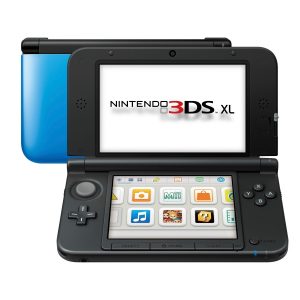 The problem is Nintendo’s greatest strength is also one of it’s greatest weaknesses – the only titles they guarantee on their system are their own, which means that old familiar quality will attract old familiar fans, but it’s tough to attract younger newer gamers when they simply aren’t competing with Mircosoft and Sony’s promotion campaigns and variety of titles.
The problem is Nintendo’s greatest strength is also one of it’s greatest weaknesses – the only titles they guarantee on their system are their own, which means that old familiar quality will attract old familiar fans, but it’s tough to attract younger newer gamers when they simply aren’t competing with Mircosoft and Sony’s promotion campaigns and variety of titles.
With all that said, should we actually be worried about Nintendo? Well, I don’t think so, but there are murky waters ahead. At a recent press conference, Nintendo President Satoru Iwata announced he has taken a 50% pay cut, but assured the audience that Nintendo was not losing focus on it’s hardware centric approach. There are strong rumours of Nintendo out-sourcing some of it’s roster for mini-games on the mobile platform, and they announced via the press conference that they were working on a new ‘health-monitoring’ technology to be possibly used with the Wii U. The Wii proved enormously successful with Wii Fit and Wii Sports, so a sequel set of peripherals and games could do wonders for the platform.
Fact is, Nintendo are a very smart, frugal company, they have unrivalled merchandising plans and a HUGE overall install base for their characters and products. I’m currently wearing an official Super Mario belt I bought in River Island. River Island! With Sega giving Nintendo exclusive rights to Sonic as well, Nintendo’s arsenal isn’t huge, but it is their own, and it is as beloved now as it ever was.
They’ll get through this, and smart money is on the Wii U and 3DS only having more 10/10 games by the end of it, too.
